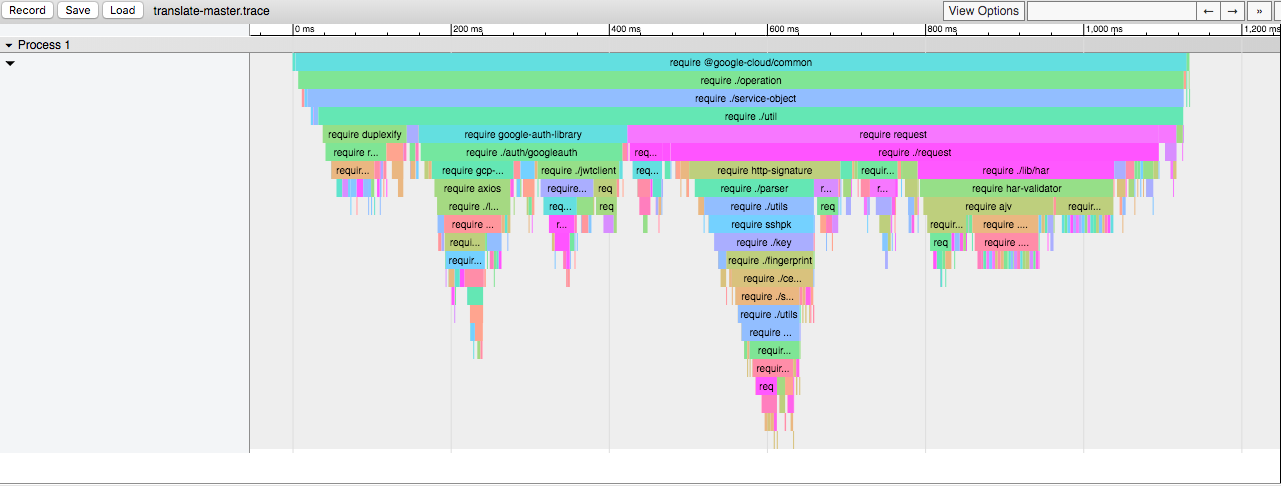mirror of
https://github.com/musix-org/musix-oss
synced 2024-12-23 16:13:18 +00:00
96 lines
3.4 KiB
Markdown
96 lines
3.4 KiB
Markdown
[](https://travis-ci.org/fhinkel/teeny-request)
|
|
|
|
# teeny-request
|
|
|
|
Like `request`, but much smaller - and with less options. Uses `node-fetch` under the hood.
|
|
Pop it in where you would use `request`. Improves load and parse time of modules.
|
|
|
|
```js
|
|
const request = require('teeny-request').teenyRequest;
|
|
|
|
request({uri: 'http://ip.jsontest.com/'}, function (error, response, body) {
|
|
console.log('error:', error); // Print the error if one occurred
|
|
console.log('statusCode:', response && response.statusCode); // Print the response status code if a response was received
|
|
console.log('body:', body); // Print the JSON.
|
|
});
|
|
```
|
|
|
|
For TypeScript, you can use `@types/request`.
|
|
|
|
```ts
|
|
import {teenyRequest as request} from 'teeny-request';
|
|
import r as * from 'request'; // Only for type declarations
|
|
|
|
request({uri: 'http://ip.jsontest.com/'}, (error: any, response: r.Response, body: any) => {
|
|
console.log('error:', error); // Print the error if one occurred
|
|
console.log('statusCode:', response && response.statusCode); // Print the response status code if a response was received
|
|
console.log('body:', body); // Print the JSON.
|
|
});
|
|
```
|
|
|
|
|
|
|
|
## teenyRequest(options, callback)
|
|
|
|
Options are limited to the following
|
|
|
|
* uri
|
|
* method, default GET
|
|
* headers
|
|
* json
|
|
* qs
|
|
* useQuerystring
|
|
* timeout in ms
|
|
* gzip
|
|
* proxy
|
|
|
|
```ts
|
|
request({uri:'http://service.com/upload', method:'POST', json: {key:'value'}}, function(err,httpResponse,body){ /* ... */ })
|
|
```
|
|
|
|
The callback argument gets 3 arguments:
|
|
|
|
* An error when applicable (usually from http.ClientRequest object)
|
|
* An response object with statusCode, a statusMessage, and a body
|
|
* The third is the response body (JSON object)
|
|
|
|
## defaults(options)
|
|
|
|
Set default options for every `teenyRequest` call.
|
|
|
|
```ts
|
|
let defaultRequest = teenyRequest.defaults({timeout: 60000});
|
|
defaultRequest({uri: 'http://ip.jsontest.com/'}, function (error, response, body) {
|
|
assert.ifError(error);
|
|
assert.strictEqual(response.statusCode, 200);
|
|
console.log(body.ip);
|
|
assert.notEqual(body.ip, null);
|
|
|
|
done();
|
|
});
|
|
```
|
|
|
|
## Proxy environment variables
|
|
If environment variables `HTTP_PROXY` or `HTTPS_PROXY` are set, they are respected. `NO_PROXY` is currently not implemented.
|
|
|
|
## Building with Webpack 4+
|
|
Since 4.0.0, Webpack uses `javascript/esm` for `.mjs` files which handles ESM more strictly compared to `javascript/auto`. If you get the error `Can't import the named export 'PassThrough' from non EcmaScript module`, please add the following to your Webpack config:
|
|
|
|
```js
|
|
{
|
|
test: /\.mjs$/,
|
|
type: 'javascript/auto',
|
|
},
|
|
```
|
|
|
|
## Motivation
|
|
`request` has a ton of options and features and is accordingly large. Requiering a module incurs load and parse time. For
|
|
`request`, that is around 600ms.
|
|
|
|

|
|
|
|
`teeny-request` doesn't have any of the bells and whistles that `request` has, but is so much faster to load. If startup time is an issue and you don't need much beyong a basic GET and POST, you can use `teeny-request`.
|
|
|
|
## Thanks
|
|
Special thanks to [billyjacobson](https://github.com/billyjacobson) for suggesting the name. Please report all bugs to them. Just kidding. Please open issues.
|